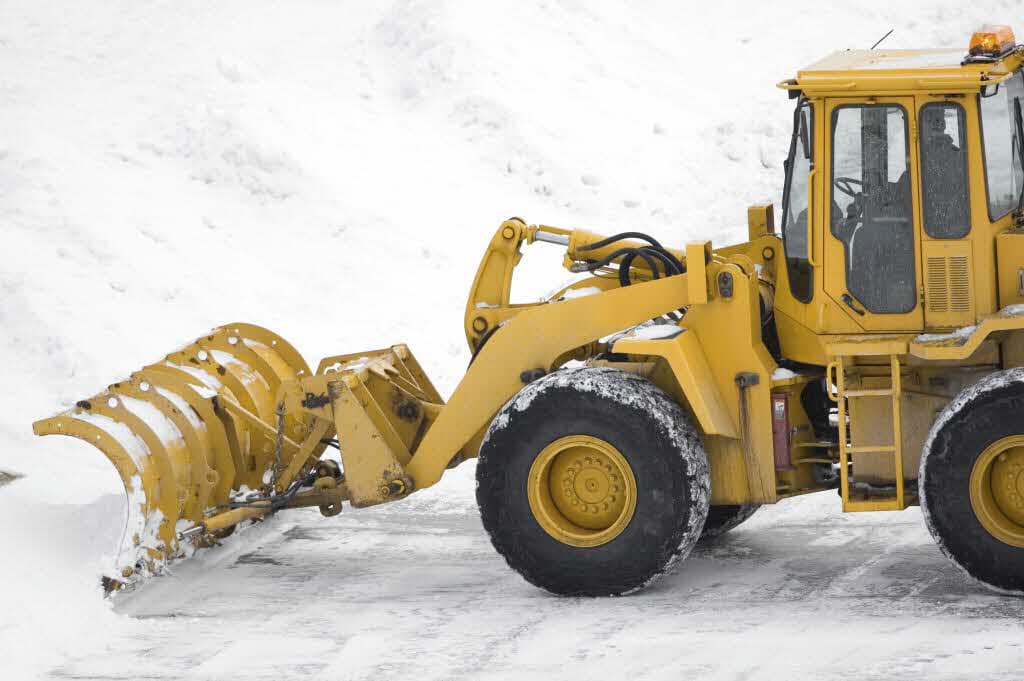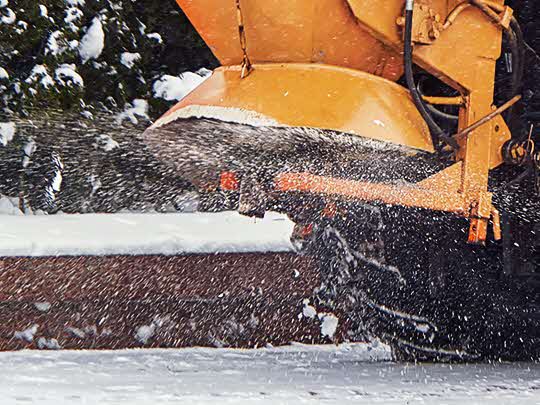Commercial Snow Plowing
Utica Michigan
We Are Locally Owned & Operated
For Over 36 Years
Contact Us Today!
About Commercial Snow Plowing
Introduction
Running a commercial property, whether it’s a shopping mall, an office building, or an industrial facility, involves a multitude of responsibilities. When winter sets in, one of these tasks is ensuring that the premises are free from snow. This is where Commercial Snow Plowing becomes crucial. Offering a safer environment for your employees, customers, and tenants, commercial snow plowing is an essential service for business premises during winter. This guide provides a comprehensive look into commercial snow plowing—its process, benefits, and why your business needs it.
What is Commercial Snow Plowing?
The primary purpose of commercial property snow plowing is to ensure the safety and accessibility of a business premise during the winter months. Through the use of specialized equipment and trained personnel, excessive snowfall is efficiently removed from parking lots, driveways, and walkways. This strategic process keeps commercial properties operational even during heavy snowfall, providing clear and safe passage for everyone who visits or works in the area.
Importance of Snow Plowing for Commercial Areas
Snow plowing for commercial areas is paramount for multiple reasons. First, businesses must provide safe access to their premises for employees and customers. In winter, snow can accumulate quickly, making parking lots, entrances, and paths difficult and dangerous to navigate. Providing a well-plowed and clear area minimizes the risk of accidents caused by slippery conditions.
Beyond just safety, commercial snow plowing also enhances your business’s professional image. Well-kept premises showcase your dedication to your customers and employees’ safety and convenience. It can instill a sense of trust and professionalism — factors that can help your business grow.
Process of Commercial Parking Lot Snow Plowing
Commercial parking lot snow plowing involves a strategic process that ensures maximum effectiveness. The process starts with an initial assessment. This helps the snow plowing service understand the parking layout, critical areas, and best strategies for snow removal. They will also identify any problematic areas susceptible to ice buildup or difficult snow removal.
During the snowfall, crews use professional strength plows to move the snow accordingly, focusing on high-traffic areas. In addition to removing snow, service also applies deicing products to prevent ice from forming.
Industrial Snow Plowing Services
Snow plowing for businesses isn’t limited to commercial properties or office buildings. Industrial facilities require extra emphasis due to their operational nature. These areas often have extra challenges due to heavy machinery, large vehicle traffic, and 24-hour operations.
Industrial snow plowing services specialize in these challenges, providing efficient snow removal without hindering daily operations. Experienced crews use heavy-duty equipment designed to handle the large scale of these properties. They use a systematic approach to ensure that all essential areas, including entrances, exits, loading docks, and pathways, are clear of snow and ice.
Benefits of Commercial Snow Plowing
The benefits of commercial snow plowing stretch beyond just clear driveways and parking lots. Here are some key benefits:
- Safety: The primary advantage is improved safety. By promptly clearing snow and ice, it reduces the risk of slips and falls, keeping your employees, customers, and visitors safe.
- Business Continuity: Snow plowing can help your business stay operational during snowy days. It ensures that patrons and employees can access your facility, helping to prevent any lost revenue due to closures.
- Professional Image: Clean, snow-free premises reflect positively on your business and demonstrate a proactive approach.
- Liability: It reduces the likelihood of injury-related litigation, a key concern for businesses.
Conclusion
Managing a commercial property doesn’t stop when the first snowflake falls. Commercial snow plowing is an essential service that keeps your business safe, presentable, and operational during winter. As different business settings have varying needs, selecting a specialised and experienced snow plowing service can make snow removal stress-free and efficient. After all, ensuring safety and accessibility for everyone on your property is not just good business—it’s your responsibility.
Call to Action
Are you ready to take active steps in ensuring the safety and accessibility of your commercial property this coming winter? Contact us today for your commercial snow plowing needs. Our dedicated team of professionals offer both general and specialized snow plowing services that cater to all types of commercial properties. We take pride in providing efficient, reliable, and affordable services that put our client’s needs at the forefront.
Commercial Snow Plowing Gallery


Contact Us Today for a FREE
Commercial Snow Plowing Quote

About Utica, Michigan
The city now known as Utica was platted by Joseph Stead in 1829, who named it “Harlow”. Others referred to the community as “Hog’s Hollow” or “McDougalville”, until a few years later it was named “Utica” by settlers from New York, in honor of the city of the same name in that state. This was common of settlers in this region, and is reflected in the names of nearby cities such as Rochester, Troy, and Livonia that are also named for New York cities.
By the 1940s, Utica was the center of a region of dairy farms and truck gardens. It had a flour mill and shipped rhubarb. Dodge Park a few miles south on the Clinton River was a state park.
As the 1950s progressed, Detroit auto companies began to build factories in neighboring Sterling and Shelby Townships, and the surrounding area began a transformation to an industrial economy.
Utica boasts a small historic district centered on Cass Avenue and Auburn Road, but few of the buildings predate 1906, due to destructive fires in 1905 and 1906.
Utica is in western Macomb County, bordered to the south by the city of Sterling Heights and to the north by Shelby Charter Township. Highways M-53 and M-59 serve the city. M-53 crosses the east side of the city, leading north 13 miles (21 km) to Romeo and south 8 miles (13 km) to Warren, while M-59 runs along the southern border of the city, leading east 8 miles (13 km) to Interstate 94 and west 15 miles (24 km) to Pontiac. Downtown Detroit is 21 miles (34 km) to the south.
According to the U.S. Census Bureau, Utica has a total area of 1.78 square miles (4.61 km), of which 0.02 square miles (0.05 km) are water. The Clinton River passes through the center of the city, flowing southeast and then east to Lake St. Clair.
| Census | Pop. | Note | %± |
|---|---|---|---|
| 1880 | 493 | — | |
| 1890 | 563 | 14.2% | |
| 1900 | 562 | −0.2% | |
| 1910 | 496 | −11.7% | |
| 1920 | 588 | 18.5% | |
| 1930 | 873 | 48.5% | |
| 1940 | 1,022 | 17.1% | |
| 1950 | 1,196 | 17.0% | |
| 1960 | 1,454 | 21.6% | |
| 1970 | 3,504 | 141.0% | |
| 1980 | 5,282 | 50.7% | |
| 1990 | 5,081 | −3.8% | |
| 2000 | 4,577 | −9.9% | |
| 2010 | 4,757 | 3.9% | |
| 2020 | 5,245 | 10.3% | |
| U.S. Decennial Census | |||
As of the census of 2010, there were 4,757 people, 2,218 households, and 1,245 families living in the city. The population density was 2,781.9 inhabitants per square mile (1,074.1/km). There were 2,463 housing units at an average density of 1,440.4 per square mile (556.1/km). The racial makeup of the city was 90.4% White, 1.9% African American, 0.5% Native American, 3.5% Asian, 1.9% from other races, and 1.8% from two or more races. Hispanic or Latino of any race were 3.8% of the population.
There were 2,218 households, of which 23.6% had children under the age of 18 living with them, 37.8% were married couples living together, 14.0% had a female householder with no husband present, 4.3% had a male householder with no wife present, and 43.9% were non-families. 38.0% of all households were made up of individuals, and 15.9% had someone living alone who was 65 years of age or older. The average household size was 2.13 and the average family size was 2.80.
The median age in the city was 41.7 years. 17.9% of residents were under the age of 18; 8.8% were between the ages of 18 and 24; 27.4% were from 25 to 44; 28.3% were from 45 to 64; and 17.4% were 65 years of age or older. The gender makeup of the city was 47.4% male and 52.6% female.
As of the census of 2000, there were 4,577 people, 1,952 households, and 1,184 families living in the city. The population density was 2,578.2 inhabitants per square mile (995.4/km). There were 2,005 housing units at an average density of 1,129.4 per square mile (436.1/km). The racial makeup of the city was 93.77% White, 0.92% African American, 0.37% Native American, 2.56% Asian, 0.74% from other races, and 1.64% from two or more races. Hispanic or Latino of any race were 2.10% of the population.
There were 1,952 households, out of which 27.2% had children under the age of 18 living with them, 43.8% were married couples living together, 13.3% had a female householder with no husband present, and 39.3% were non-families. 34.2% of all households were made up of individuals, and 10.8% had someone living alone who was 65 years of age or older. The average household size was 2.29 and the average family size was 2.96.
In the city, the population dispersal was 21.0% under the age of 18, 9.6% from 18 to 24, 31.7% from 25 to 44, 23.2% from 45 to 64, and 14.5% who were 65 years of age or older. The median age was 37 years. For every 100 females, there were 92.9 males. For every 100 females age 18 and over, there were 91.8 males.
The median income for a household in the city was $38,683, and the median income for a family was $57,156. Males had a median income of $36,912 versus $26,353 for females. The per capita income for the city was $21,615. About 4.8% of families and 7.0% of the population were below the poverty line, including 6.7% of those under age 18 and 17.3% of those age 65 or over.
Utica Community Schools operates public schools, including Utica High School, Eppler Junior High School Flickinger Elementary School, and Wiley Elementary School. They serve the communities of Sterling Heights, Utica, and Shelby Township.
Contact Us Today for a FREE
Commercial Snow Plowing Quote
Our Commercial Snow Plowing services are available in Utica as well as all of Macomb County.
Our dedicated team at D&J Contracting Inc is at-the-ready to provide you with great customer service and first class Commercial Snow Plowing services. Reach out to us at (586) 954-0008 to discuss your Commercial Snow Plowing needs today!
Related Service in Utica:
Other Services In Utica
Other Cities Where We Provide Commercial Snow Plowing